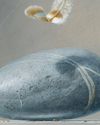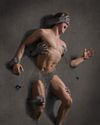
THE MISSION
Take your photos to the next level with basic adjustments
Time needed 10 minutes
Skill level Beginner
Kit needed Adobe Lightroom Classic CC
Crafting the perfect balance of exposure and tones is easier than you might think – especially when you’re using Lightroom Classic CC’s Develop module. It has a whole host of handy tools and adjustments you can use to speedily work up each of your images with ease.
The Develop module features a large range of adjustments and tools, including Lens Correction, Tone Curve and many, many, more. However, one of the most powerful features we can utilize here is the Basic panel on the right of the interface.
These deceptively easy-to-use adjustable sliders enable users to enhance various aspects of their images, including colour temperature, exposure, vibrance and more. Thankfully, this panel is brilliantly simple, though it is one of the most important assets in Lightroom Classic CC to master when learning how to edit your pictures effectively.
If you understand how to make the most of sliders such as Exposure, Shadows, Highlights and Temperature, then you’ll have a solid editing foundation that you can then build on with fun flourishes further down the line.
This story is from the May 2021 edition of PhotoPlus : The Canon Magazine.
Start your 7-day Magzter GOLD free trial to access thousands of curated premium stories, and 9,000+ magazines and newspapers.
Already a subscriber ? Sign In
This story is from the May 2021 edition of PhotoPlus : The Canon Magazine.
Start your 7-day Magzter GOLD free trial to access thousands of curated premium stories, and 9,000+ magazines and newspapers.
Already a subscriber? Sign In

The Art of Copying Art - James Paterson shows you how to use your Canon gear to capture artwork and paintings the right way with simple camera and lighting skills
Whether you want to capture a painting like the above, digitise old prints or reproduce any kind of canvas, there's real skill in capturing artwork with your camera. Not only do you need the colours to be accurate, you also need to master the spread, angle and quality of the light to minimise glare and show the work at its best.This painting by the artist Bryan Hanlon has a wonderfully subtle colour palette. To reproduce the painting in print and digital form, it needs to be captured in the right way.

Fright night
Canon photographer and digital artist Alexander loves to craft incredible fantasy scenes with a spooky horror twist

Sharpen your shots with DPP
Sharpening a digital image also increases contrast at the edge of details

CANON ImagePrograf PRO-1100
Deeper blacks, better bronzing, greater lifespan and 5G Wi-Fi -Canon's new printer is full of new tech, says

Canon's new 'kit lens' is actually a half-price f/2.8 trinity lens!
The Canon RF 28-70mm F2.8 IS STM lacks a red ring, but borrows premium features from its L-series siblings

DREW GIBSON
Pro motorsports photographer Drew on why he hasn't (yet) switched to Canon's mirrorless system, why old-school techniques can be the most reliable, and the lessons learned from more than a decade shooting the world's biggest car brands

Up in smoke
Make a smoky shape in Affinity Photo and get to grips with the amazing Liquify Persona under the guidance of James Paterson

Expand your creativity with Generative Fill
Photoshop's Al-powered feature brings revolutionary new tools to image editing. James Paterson reveals all...

Turn your images into vintage postcards
Wish you were here? Sean McCormack explains how you can give your summer photographs a vintage postcard look

The Angel Malibu
Light painting an American movie producer in the Wadi Rum Desert in Jordan was a highly unlikely evening out for David!